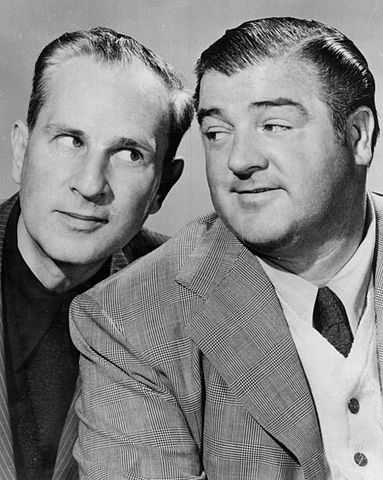
Most of us, employed, unemployed, or under appreciated feels underpaid. A good portion of America is underemployed and not using our true talents. Many of us are swindled out of the value we bring to our employers and at times, talked out of our value. We are conned, and fooled with by a savvy and smooth talking boss or potential employer that says that changes are coming.
Although the art of negotiating is a shifting and fluid craft few of us learn and master, we fail to communicate our true value. It happens in dating and marriage, friendships, networking, contracts, and everywhere else. This happens daily somewhere in the world at performance reviews. By the end of this article, consider the quality time you’ll need to avoid such the very of your worth if nothing else for your future.
I ran across an old comedy routine from many years ago by Abbott and Costello called “Payday.” This is a perfect example of the ways that people often are de-valued. Let’s be clear: If you know and understand your value, then it is unlikely you will allow someone to talk you out of your value no matter how much power someone holds.
As part of Abbott and Costello’s shtick, Costello is the one that plays the excitable, vulnerable straight man who is always out of sorts through the confusion and at times, a little gullible. Abbott is the straight talking mastermind of the two who is quick on his feet and mostly his mouth. Depending on the version of “PayDay” you see or read, the better in my opinion is when Costello works for Abbott for one dollar a day.
Costello says, “I Quit” knows and remember the terms of his hiring, but for him, that ends his ability to gain ground and get the money he deserves. This is where we learn how we go wrong in standing our ground. If you want to see an adaptation of the original sketch, then check it out here.
1) Make sure that you are wrong
Lou Costello: I’m working for you, and you owe me a whole year’s salary!
Bud Abbott: Wait a minute …
Lou Costello: 365 days, 365 dollars, you owe me a dollar a day.
Bud Abbott: Wait a minute, let’s straighten this out.
Lou Costello: Pay me up!
Abbott doesn’t agree with the terms, but he just agrees that there are 365 days in a year. Although Costello maybe right, he is too much of a hurry to listen and slow down. Abbott says he wants to “straighten this out,”but the way he wants to settle is not in Costello’s favor. You must communicate in a way that forces people to listen, which may mean to lower your voice, not raise it.
In addition, using incendiary language only fuels confusion and emotion, not bridge the gap. When Costello says, “Pay me up,” this only makes Abbott respond defensively. It is one of the last things you want. But, we want to inflame the person and the issue, and forgo any value maintained. So far, so good!
The best way to compromise your value is to focus solely on money.
2) Be emotional, confused, and unfocused
Bud Abbott: You say you worked 365 days for me, and you want to be reimbursed.
Lou Costello: Look, I don’t want to burst anything! Just give me my money, 365 bucks, I’ll get out.
Bud Abbott: Okay, look, now don’t get excited, take it easy. Now, listen. How many hours a day did you work?
Lou Costello: Eight hours a day.
Bud Abbott: And how many hours are there in a day?
Lou Costello: Look, now Abbott, don’t try to put anything over on me. There’s 24 hours in a day, all but February, which has 28.
Bud Abbott: You’re absolutely right, there are 24 hours in a day. But by working 8 hours you only really worked one-third of each day, isn’t that right?
Lou Costello: That’s according to the way you figure it.
Abbott convinced him that in a subtle and slick way that he was getting paid one dollar for 24 hour work day instead of eight. Costello was too excitable, which is perfect, because excitable people overlook the smaller logical things to get results.
Of course, you can be confused about what you deliver. Nothing said about the work you do. No valuable project to point to as an accomplishment. Only that you worked a lot of days. What a shame! You seal the deal by letting someone else figure your value for you to which Costello surrenders to Abbott’s thinking, “That’s according to the way you figure it.”
3) Only you should win, and get what you want
Bud Abbott: Well, one-third of 365 is about 121 dollars. So you only actually have 121 dollars coming to you. That’s the way I reckon it
Lou Costello: You sure are wreckin’ it! Come on, give it up, give me the dough.
Bud Abbott: Well, you did have 121 dollars coming, but …
Lou Costello: I knew there was a but in it.
Bud Abbott: But you didn’t work Sundays, did you?
Lou Costello: No, I had to take a day off to wash my lingerie!
Bud Abbott: All right, there are 52 Sundays in a year, deduct 52 from 121 dollars which leaves 69 dollars coming to you.
Lou Costello: You’re sure of that?
Bud Abbott: Positive!
Lou Costello: You see, I don’t want you to cheat yourself.
Bud Abbott: Now, that’s mighty nice of you, to look out for my interests.
If your boss is a fast talker like Abbott, and you are often a victim of his banter, then you know that his logic will have twists and curves to confuse you. It’s not that you didn’t anticipate problems by getting it all in writing, but by not preparing for his forgetfulness, you lose.
My first apartment that I rented had a lease and regulations in renting the apartment, but I was to receive the last month free. Since it was not a part of my lease, I had to pay the last month’s rent. I didn’t anticipate them potentially losing the lease or at least including my last month free.
Only if Abbott and Costello documented his wants in writing at the beginning. If you want frustration and to lose value to your employer, don’t put anything in writing.
4) Like Stevie Wonder said once, “You Haven’t Done Nothing!”
Bud Abbott: All right, I’ll be glad to give you the 69 dollars, but …
Lou Costello: Hold on to your hats, here we go again! Look, Abbott, give me a couple of dollars. How’s that?
Bud Abbott: Well, you must admit you only worked a half a day on Saturday, isn’t that right, partner?
Lou Costello: Partner! Now that I’m losing money, I’m a partner! Look, will you give me a dollar? I’ll settle … give me a half a buck.
Bud Abbott: Now wait a minute! Wait a minute, just a second. Just a minute, now where was I?
Lou Costello: You just had a toehold on my 69 dollars.
Bud Abbott: Oh yes, yes. A half a day on Saturdays, 52 Saturdays in a year, one half of 52 is 26, so you will deduct 26 from 69, leaving you the sum of 43 dollars.
Don’t bother talking about what you have accomplished. Your boss will not address the good or bad in your work. Costello at this point is just trying to get something before leaving without mentioning the work he’s done. If you want a measurement of your career, look at what you measured. That is what it means to you, and your employer gets it before you do.
5) You’ll “settle “
In the same segment above, Costello has given up, just like you do.
Ha! You fall for the trap of settling for anything. No research, no due diligence, no other conversations that will help you gain perspective on whom you are and what you deliver. Is it laziness? Maybe. Neglect? Maybe. It’s very hard work to understand what the boss will say, or your business partner, or anyone else. You’ll settle.
Is it that easy for you to be talked out of your value? You don’t take steps forward by not “wanting to be bothered!” Protect your value and want you offer as much effort as your life.




